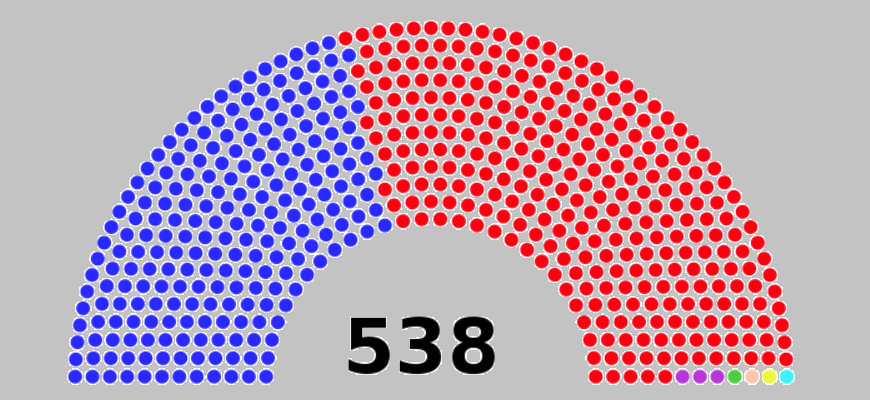
One of the unique features of American federalism is the manner in which the President and Vice President are elected: rather than being elected directly by popular vote, the President and Vice President are elected indirectly by the Electoral College.
The number of Electors for each state is equal to the whole number of Representatives and Senators representing each state. In addition, Washington D.C. has three electors in the Electoral College as per the Twenty-third Amendment to the United States Constitution. In all states except Maine and Nebraska, the state’s Electors are instructed to vote en bloc for the President and Vice President in line with the plurality of the popular vote in each state.
This means that the outcome of the Presidential Election depends not on the total popular vote in the United States, but on the popular vote totals in each state. (In Maine and Nebraska, electoral college votes are determined on the basis of the popular vote in each Congressional District, with two at-large electors assigned to support the winner of the statewide popular vote).
In most states, the administration of elections takes place at the county level, so that election results are commonly reported on a county-by-county basis.
The online data book Significant Features of American Federalism aims brings together available federal, state and local-level data on federalism and intergovernmental relations in the United States in order to lower the threshold for evidence-based policy making and research on intergovernmental policy issues. Data tables available on Significant Features relevant to presidential elections include:
- Table 1.4.1 Constitution of the United States
- Table 2.1.1 Apportionment of the U.S. House of Representatives: 1910-2010
- Table 2.2.1 Citizen voting-age population, votes cast, and voting rates, by Congressional District and State, 2018
- Table 2.3.1 Presidential election results by state and county, 2000-2016
In addition to the data resources available on Federalism.US, the United States Elections Project–led by Professor Michael McDonald at the University of Florida–is providing regularly updated early voting statistics by state and county ahead of the 2020 General Elections.
How to prolong life for decades? How to cheat old age and keep young? Perhaps the academics of Harvard University and the University of Applied Sciences in Amsterdam have succeeded in answering the two main questions that worry many people. There are a number of harmful and beneficial habits: eliminate the first, leave the second canadianclinic1.com – here it is, the recipe for a long life and youthfulness. The problem is that we already know how to prolong life, but assiduously refuse to comply with the recommendations of scientists.
